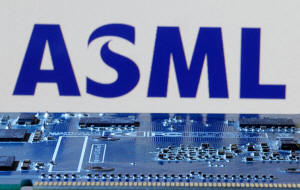|
The
paper said the ministries involved had dubbed the effort
"Operation Beethoven," citing unnamed sources. A spokeswoman for
the Economic Affairs Ministry said it could not discuss policies
toward specific companies.
The report follows comments made by ASML CEO Peter Wennink in
January when he warned that his company is highly reliant on
skilled foreign labor after anti-immigration parties booked big
gains in 2023 elections.
ASML declined to comment on Wednesday.
Multinationals Shell and Unilever departed the Netherlands in
recent years following an unfavorable change in Dutch tax law.
A move to end a tax break for highly skilled immigrants is being
rolled out under the current government, while moves to make it
more difficult for foreigners to study at Dutch universities are
under consideration.
"The consequences of limiting labour migration are large, we
need those people to innovate," Wennink said in January. "If we
can't get those people here, we will go somewhere where we can
grow."
Around 40% of ASML's 23,000 employees in the Netherlands are not
Dutch. Europe's largest tech company sources parts from around
the globe but currently assembles its machines in Veldhoven,
Netherlands before shipping them to major computer chipmakers.
Though it would be difficult for the company to move its
headquarters, De Telegraaf mentioned France as a possible
destination for a company expansion.
Chipmakers across the globe are pouring billions of dollars in
investment to set up new plants, encouraged by the rising use of
semiconductors in everyday devices and generous subsidies from
the United States and the EU aimed at keeping the West ahead of
China in the race for cutting-edge technology.
(Reporting by Toby Sterling;Editing by Elaine Hardcastle)
[© 2024 Thomson Reuters. All rights
reserved.]
This material may not be published,
broadcast, rewritten or redistributed.
Thompson Reuters is solely responsible for this content.

|
|




